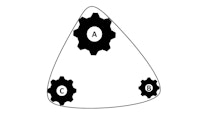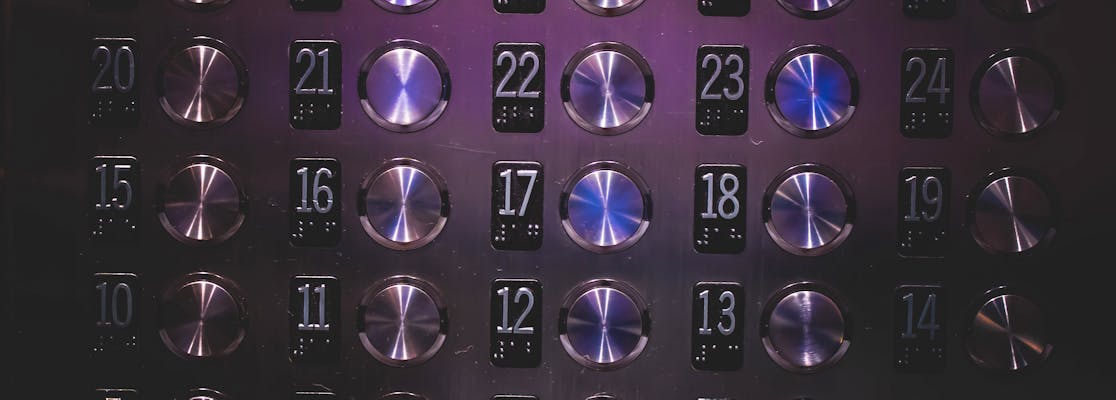The Elevator Industry Aptitude Test (EIAT) Practice & Tips
All products and services featured are independently selected by WikiJob. When you register or purchase through links on this page, we may earn a commission.
- What Is the EIAT Test?
- What Is Being Assessed On The Elevator Aptitude Test?
empty
empty
empty
- EIAT Practice Test - Question Formats and Type
empty
empty
empty
- What to Expect When Taking the EIAT Test in 2026
- How Is the Elevator Industry Aptitude Test Scored?
- How to Pass the EIAT Test in 2026
- Frequently Asked Questions
- Final Thoughts
To start a career in the elevator industry, you’ll need to secure a place on a recognized apprenticeship scheme.
Every candidate applying for such a scheme will need to pass a pre-screening assessment known as the Elevator Industry Aptitude Test (EIAT).
This article will walk you through what the EIAT test is, what to expect on the day of your elevator mechanics exam and how best to prepare.
What Is the EIAT Test?
The EIAT test is administered by the International Union of Elevator Construction (IUEC) and the National Elevator Industry as a screening assessment for entry onto the National Elevator Industry Educational Program (NEIEP).
The NEIEP takes applications from candidates wishing to join an elevator industry apprenticeship scheme, so if this is your chosen career path, you’ll be required to sit an EIAT test.
In addition, you’ll also need to sit a tools recognition exam and attend an interview, in which you will also be scored.
The EIAT test is the first stage of the recruitment process and must be passed before you can progress to interview.
What Is Being Assessed On The Elevator Aptitude Test?
The EIAT test is designed to measure both your existing skills and knowledge and your ability to apply your understanding to a range of scenarios.
You’ll be tested on your numerical, reading and mechanical aptitude, with each ability addressed in its own section of the test.
Numerical Skills
This part of the test is referred to as the math (or arithmetic computation) section.
It is not a complex math exam but rather focuses on basic numeracy and general arithmetic, including subtraction, addition, division, multiplication, fractions and percentages.
This section shows potential employers that you have a good level of numerical ability and can perform basic calculations both accurately and at speed.
Reading Skills
These are tested in the reading comprehension section of the EIAT test.
Questions will measure your vocabulary and knowledge of definitions, synonyms and antonyms.
Again, this is not a complex exam, but gives employers a good indication of your grasp of the English language, and thus your ability to communicate to the required standard.
Practice Elevator Industry Aptitude Test with JobTestPrep

Mechanical Skills
In the mechanical comprehension section, you’ll be tested on your understanding of a range of mechanical concepts and physical principles.
It’s not just about what you know, but how you put your knowledge into practice.
Questions relating to things like gears, pulleys and force will show your ability to apply the correct concepts and principles to solve a given problem.
As these skills are central to your role as an elevator mechanic, this section of the EIAT test is used to predict your future performance as an employee.
EIAT Practice Test - Question Formats and Type
Within each section of the Elevator Industry Aptitude Test, you’ll encounter several different question types. However, all will be multiple-choice.
Below is an outline of what you can expect, with some example questions and answers.
Arithmetic Computation Section
In this section, you can expect to come across two main question types:
- Basic arithmetic
- Fractions, decimals and percentages
Basic Arithmetic
This will be a mix of straight-forward calculations and sums that require you to understand the order of operations.
47,182 + 15,908 = ?
a) 63,090
b) 62,090
c) 63,280
d) 63,140
Fractions, Decimals and Percentages
These questions are slightly more complex than those on basic arithmetic but are easily handled by learning a few key formulas.
1/3 + 3/6 = ?
a) 4/6
b) 4/9
c) 5/6
d) 4/3
Reading Comprehension
To test your language skills, you’ll be asked to answer sentence completion questions and questions on vocabulary.
Sentence Completion
Here, you’ll need to read a sentence and analyze its meaning to pick missing words from multiple-choice options.
If you need to prepare for a number of different employment tests and want to outsmart the competition, choose a Premium Membership from JobTestPrep.
You will get access to three PrepPacks of your choice, from a database that covers all the major test providers and employers and tailored profession packs.
In order to ……….. to the interview stage of my elevator apprenticeship application, I must ………. a score of 70% or above on my EIAT test._
a) progress, achieved
b) skip, get
c) progress, achieve
d) move, achieve
Sample questions for the EIAT test are valuable because they strengthen my knowledge.
Which of the following is a suitable replacement for the word ’valuable’?
a) beneficial
b) precious
c) profitable
d) interesting
Mechanical Comprehension Section
This section is where you’ll apply your pre-existing knowledge of physical principles and concepts. Common questions revolve around gears, levers and pulleys.

If cog A starts rotating, which of the cogs will have the fastest rotation speed?
a) Cog A
b) Cog B
c) Cog C
d) All of the cogs will rotate at the same speed
What to Expect When Taking the EIAT Test in 2026
To prepare yourself for the EIAT test, it’s important to know what to expect on the day. Here’s a breakdown of the key information:
- The EIAT test is a paper-based exam, On application to the NEIEP, you’ll be given a specific test date and time at a designated assessment center.
- It’s important to note that test dates cannot be changed, and you must take a valid form of photo ID with you on the day to prove your identity.
- All three sections of the exam are multiple-choice, and each consists of between 30 to 35 questions.
- The EIAT is a timed assessment. You’ll have 25 minutes per section, giving a total test time of 75 minutes.
- Calculators are not permitted in the examination room.
How Is the Elevator Industry Aptitude Test Scored?
The Elevator Industry Assessment Test is a pass/fail exam, for which the pass threshold sits at 70%. You must achieve above this threshold to be invited to the interview stage of your application.
Anyone achieving below the threshold will be required to start the recruitment process from scratch.
If you achieve a score of 70% or above on the EIAT test, you’ll sit your tools recognition exam and attend your scored interview.
The results from all three stages will be combined to give your overall performance score, which employers will use to assess your suitability. This score is valid for two years.
Overall performance scores are split into four tiers:
- 96 – 100 points = tier one
- 90 – 95 points = tier two
- 80 – 89 points = tier three
- 70 – 79 points = tier four
As competition for elevator industry apprenticeships is fierce, the higher you rank the better your chances are of securing a place. Performing well on your EIAT test will help you stand out from your fellow applicants.
How to Pass the EIAT Test in 2026
Before your elevator mechanics exam, be sure to take plenty of practice tests to familiarize yourself with the format and question types you’ll face on the day.
This is an important part of your career journey, so preparation is vital.
Also, try these top tips to help you achieve the highest score possible on your EIAT test:
Step 1. Brush Up on Basic Arithmetic
As calculators are not permitted in the exam, you need to be confident in performing basic calculations on paper.
Questions in the math section are not complex, and the skills you need can be easily mastered with practice.
The more you focus on your numerical ability the quicker you’ll become, which is important when taking a test under time constraints.
Step 2. Take an Educated Guess
There is no negative marking on the EIAT test. That is to say, you won’t lose points for an incorrect answer.
With that in mind, it’s always better to take an educated guess on any questions you’re unsure of. Remember, this is a multiple-choice exam, so there’s always the chance you’ll pick the correct answer.
Step 3. Understand the Context
This tip applies primarily to the reading comprehension section. Be sure to read each piece of text carefully, taking time to understand the question in context.
This will help you decipher which words to choose from your multiple-choice options. Points can easily be missed in this section if you simply skim-read the questions.
Step 4. Think in Extremes
The mechanical comprehension section should come fairly naturally to anyone interested in this line of work, but exam stress and time pressure can often interfere.
If you’re struggling to picture the effects of a physical principle, exaggerate the process in your head. So, for example, instead of working with two items that only slightly differ in size or weight, imagine them as extreme opposites.
Step 5. Practice the Day Before Your Test
In many scenarios, it is not advised to study the day before your exam, but in the case of the EIAT test, it’s all about remembering principles and processes. These can be easily forgotten, particularly under exam stress.
Test prep can include using study guides, practice questions and other test preparations to improve your test score.
So, use the day before to run over your revision notes and remind yourself of everything you’ve learned.
The elevator aptitude test is a paper-based assessment, which is split into three sections: reading comprehension; mechanical comprehension and arithmetic computation.
Each part of the test includes between 30 and 35 multiple-choice questions.
The elevator industry aptitude test is a timed assessment. Candidates are allowed 25 minutes for each section, giving a total test time of 75 minutes.
The EIAT is used to screen candidates who want to apply for job roles in the elevator industry. You will be asked to take the test when applying for job roles with any elevator company.
Major employers in the elevator industry include OTIS, Schindler and WMATA, and all of these employers use the EIAT.
No, you are not allowed to use a calculator during the Elevator Industry Aptitude Test. Candidates are not permitted in the examination room.
The EIAT is a pass/fail exam. To pass, you must achieve a minimum score of 70%. If you score below 70%, you will need to reapply from the start of the recruitment process.
If you pass, your scores from the three stages of the test will be combined, giving an overall performance score.
This score is valid for two years, and employers will use it to decide whether you are suitable for the job role that you have applied for.
Unlike other tests, it is important to study the day before the Elevator Industry Aptitude Test.
The test is based on principles and processes, which can be forgotten easily when working under exam conditions.
The day before the test, spend time going through your notes and revisiting everything that you have learned in the weeks leading up to the test. This will help you to feel more confident on the day of the EIAT.
If you are eligible for the Elevator Industry Aptitude Test you will receive notification from the International Union of Elevator Constructors (IUEC).
This notification will be sent to you within 15 days of the IUEC receiving your application and accompanying documents.
Final Thoughts
The EIAT test is the first step towards a successful career in the elevator industry.
Success in this exam is paramount as most employers will start recruitment with those who rank in the top tier of the scoring system.
As mentioned, this is not an overly complex exam. Even if you’re not completely comfortable with the numerical and reading comprehension elements, some structured practice will go a long way in helping you achieve a high score.
Remember, the pass mark is 70%, but to rank in tier one overall you should aim above the minimum requirement. In doing so, you’ll open doors to a dynamic and financially rewarding career.






